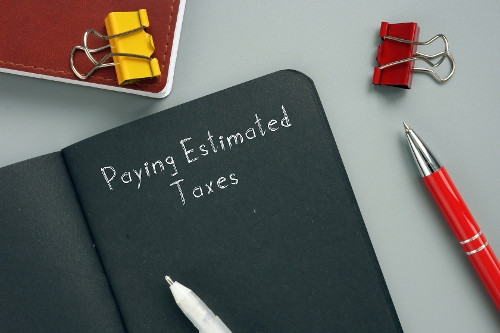
June 21, 2023
Taxes are an integral part of our lives as responsible citizens. While most of us are familiar with filing annual tax returns, there's another aspect that often gets overlooked: estimated tax payments. In this article, we'll explore why estimated tax payments are important, the penalties for not paying them, as well as the reasons behind their existence and the need to fulfill this financial obligation.
Why Are Estimated Tax Payments Important?
Estimated tax payments play a crucial role in maintaining the functioning of our tax system. They ensure a steady inflow of revenue for the government throughout the year, rather than relying solely on a lump sum payment during tax season. This allows the government to fund various public services and infrastructure projects efficiently. By making timely estimated tax payments, you contribute to the stability and continuity of these essential services and avoid costly penalties and interest.
Penalties for Not Paying Estimated Taxes
Failure to pay estimated taxes can result in penalties imposed by the tax authorities. These penalties are designed to encourage individuals and businesses to meet their tax obligations in a timely manner. While the specific penalties can vary depending on your jurisdiction, common consequences may include interest charges, late payment penalties, or even additional fines for intentional non-compliance. By paying your estimated taxes promptly, you can avoid these financial penalties and maintain a good standing with the tax authorities.
Who Should Make Estimated Quarterly Tax Payments
The IRS requires estimated quarterly tax payments if you expect:
- You’ll owe at least $1,000 in federal income taxes this year, even after accounting for withholding and tax credits, and
- Your withholding and tax credits will cover less than 90% of your tax liability for this year or 100% of your liability last year, whichever is smaller. The threshold goes up from 100% to 110% if your adjusted gross income last year was more than $150,000 ($75,000 if filing status is married filing separately.)
Many states have similar requirements for estimated quarterly tax payments.
How to Calculate Estimated Taxes
Calculating estimated taxes involves several steps:
- Estimate your total income: Begin by estimating your total income for the year, including earnings from various sources like employment, self-employment, investments, and rental properties.
- Consider deductions and credits: Take into account any deductions and credits you qualify for. Deductions reduce your taxable income, while credits directly reduce your tax liability.
- Determine taxable income: Subtract your deductions and credits from your estimated total income to arrive at your taxable income.
- Calculate tax liability: Use the current tax brackets and rates provided by the tax authorities to calculate your estimated tax liability based on your taxable income. Tax brackets indicate the percentage of tax owed at different income levels.
- Account for withholding and credits: Consider any income tax withholding from your paychecks or credits you expect to receive during the year, such as estimated tax payments made in previous quarters.
- Determine required payment: Subtract your withholding and credits from your estimated tax liability to determine the amount you need to pay in estimated taxes.
- Pay in installments: Estimated taxes are typically paid in four equal installments throughout the year. The due dates for these payments are:
- April 15th: First quarter estimated tax payment
- June 15th: Second quarter estimated tax payment
- September 15th: Third quarter estimated tax payment
- January 15th of the following year: Fourth quarter estimated tax payment
Embracing the "pay-as-you-go" approach to taxes allows for better financial planning and helps you stay on top of your tax obligations. Contact your Faw Casson advisor if you have questions about estimated tax payments or for more information about our tax planning services.
